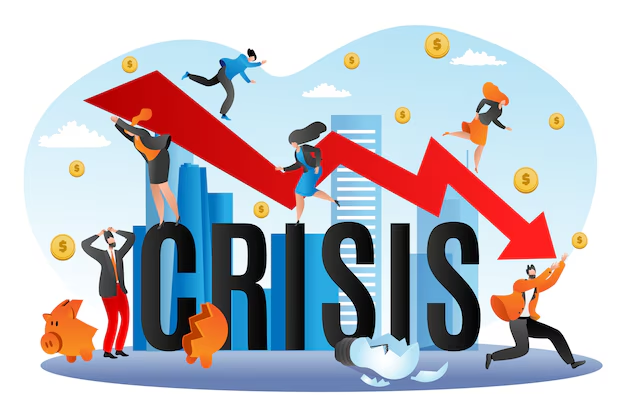New Zealand's economy faces challenges that are often overlooked by politicians and policymakers. While official narratives may paint a picture of steady growth, the reality is more complex. From rising household debt to an over-reliance on specific industries, the underlying issues can have long-term implications for the nation’s economic stability. This article dives into these issues, offering a deeper understanding of what is not being addressed in the public discourse.
The Hidden Underbelly of New Zealand’s Economic Landscape
New Zealand's economy is heavily influenced by its agricultural sector, which contributes significantly to its GDP. However, this reliance presents a vulnerability to global market shifts. For instance, the dairy industry, accounting for about 20% of the country's export revenue, is susceptible to international price fluctuations. According to Stats NZ, the agricultural sector's growth has slowed due to fluctuating global demand, which affects the overall economic health.
Pros and Cons of Current Economic Policies
While there are advantages to New Zealand's current economic strategies, such as a strong focus on innovation and technology, there are also significant drawbacks that need addressing.
Pros:
- Innovation Focus: New Zealand has invested in technology and innovation, leading to a robust start-up ecosystem.
- Trade Agreements: The country benefits from multiple trade agreements, increasing access to global markets.
- Tourism Growth: Despite recent setbacks, tourism remains a critical economic driver, contributing to job creation.
Cons:
- Over-reliance on Agriculture: A significant portion of GDP comes from agriculture, making the economy vulnerable to global price changes.
- Housing Market Instability: High property prices are a barrier to homeownership, impacting economic mobility.
- Rising Household Debt: Household debt levels are among the highest in the OECD, posing risks to financial stability.
Case Study: Xero – Navigating Economic Challenges
Xero, a New Zealand-based software company, exemplifies how innovative strategies can counter economic challenges. Originally struggling with market penetration, Xero adopted a cloud-based approach that revolutionized accounting for small businesses globally.
Problem: Xero faced stiff competition from established software giants and needed a unique value proposition.
Action: The company shifted to a subscription-based model, focusing on usability and integration with other business tools.
Result: Xero's revenues increased by 31% in 2022, and its customer base expanded to over 3 million users worldwide.
Takeaway: This case study demonstrates the importance of leveraging technology to enhance competitiveness, a strategy that other New Zealand businesses can emulate to mitigate economic pressures.
Contrasting Perspectives on Economic Growth
There's a debate among economists and policymakers about the best strategies for sustaining economic growth in New Zealand. On one side, some advocate for increased government intervention to stabilize critical sectors like housing. On the other, free-market proponents argue for reducing regulations to encourage entrepreneurship and innovation.
Advocate View: Government intervention can ensure equitable growth and protect vulnerable industries.
Critic View: Excessive regulation stifles innovation and limits economic potential.
Middle Ground: A balanced approach that combines strategic regulation with incentives for innovation might offer the best path forward.
Myths and Mistakes in Economic Policy
Several misconceptions persist about New Zealand's economic dynamics. Here are some myths and the realities behind them:
Myth: "New Zealand's economy is recession-proof because of its robust agricultural sector."
Reality: The agricultural sector is highly susceptible to climate change and international market trends, making it far from recession-proof.
Myth: "High immigration levels are the main cause of housing shortages."
Reality: While immigration contributes, lack of housing supply and investment in infrastructure are more significant factors.
Biggest Mistakes to Avoid
- Ignoring Global Trends: Businesses must stay informed about global economic shifts to adapt strategies proactively.
- Neglecting Technology Integration: Companies that fail to adopt digital tools risk falling behind in efficiency and competitiveness.
- Over-leveraging in Real Estate: Diversifying investments can mitigate risks associated with real estate market fluctuations.
Future Trends and Predictions
As we look ahead, several trends are poised to shape New Zealand's economic landscape. By 2028, it's predicted that technological advancements will account for a significant portion of GDP growth, driven by sectors like fintech and agritech. Moreover, there's an increasing push towards sustainable practices, which could redefine industry standards and open new markets.
Conclusion
Understanding the intricacies of New Zealand's economic challenges is crucial for businesses and policymakers alike. By leveraging innovation and adapting to global trends, New Zealand can navigate these hurdles effectively. What's your perspective on the country's economic future? Share your thoughts and join the conversation!
People Also Ask
- How does New Zealand's economic crisis impact local businesses?Local businesses are facing increased operational costs and market uncertainties. However, those that adapt by integrating technology and exploring new markets report improved resilience.
- What are the biggest misconceptions about New Zealand’s economy?One major misconception is that the agricultural sector can shield the economy from global downturns. In reality, it is vulnerable to international market shifts and climate change.
Related Search Queries
- New Zealand economy 2024
- Agricultural impact on NZ economy
- New Zealand housing market trends
- Challenges in NZ economic policy
- Future of tech innovation in New Zealand


























